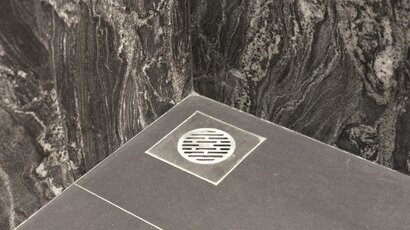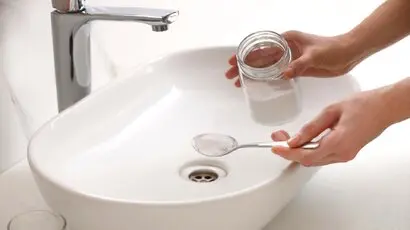Is your bathtub or kitchen sink filling up with grimy water?
Blocked drains often mean a clogged sewer drain. When wastewater isn’t flowing properly to the sewer system or septic field, it can reverse. This means it might come up through toilets, bathtubs, and drains.
A clogged sewer isn’t just a plumbing problem; it’s a health risk because sewage has harmful microorganisms.
DIY fixes might clear the clog temporarily, but unless you tackle the main issue, the blockages will return, potentially damaging the foundations of your property over time.
If you’re not a certified plumber, recognising the cause of sewage backup and fixing a sewer line clog can be tricky. No worries, though, because this guide will help you identify and fix these clogs with a few simple methods. Let’s dive into it!
Signs Your Sewer Lines Are Clogged
![]()
Clogs build up over time as materials get trapped in the sewer lines. Spotting a clogged sewer line can be tricky, especially if you’re not familiar with plumbing basics.
Watch out for these signs of a blocked sewer line:
1. Gurgling Drains
A normally functioning drain won’t make weird sounds, so gurgling noises from your sinks or toilet indicate that the sewer line is clogged.
2. Migrating Wastewater
Wastewater migrating to other drains of the home is also an early warning sign that your sewer lines are clogged. More often than not, you’re likely to notice this after flushing the toilet or doing the laundry.
3. Water Draining Slowly
Sometimes, you do household chores like washing utensils and water pools in the sink and draining very slowly or overflows. Homeowners often ignore water draining slowly, but it indicates something’s wrong with the sewer line.
4. Frequent Clogs
If dealing with clogs has become regular, something obstructs your sewer lines. Using a snake auger or vinegar-baking soda mixture may unclog them, but clogs will reoccur after some time unless you remove the build-up in the main sewer line.
Why is There Sewage Coming Up Through My Drains– The Root Cause
There are a variety of things that may lead to a sewage backup in your household drains. Here is a quick rundown of the five things likely to prevent water from flowing to the main sewer system or the septic tank.
![]()
1. Grease
Many homeowners accidentally pour grease down the kitchen sink while cooking or washing up, not realising the potential plumbing damage.
Grease may float at first, but eventually, it settles in the pipes. As more grease and fats are washed down, they form clogs, blocking water flow.
2. Hair
Another culprit responsible for sewer pipe malfunctions is hair. When household members shower, multiple strands of hair slide down the drain but cannot reach the sewer system.
Since hair passes through the bathroom drain daily, the accumulated hair strands form large clumps along with soap suds, obstructing water flow. The same holds for pet hair so that a drain cover might be better.
3. Garden Debris
The trees in your garden may also be responsible for clogging the sewer pipes because leaves, debris, rocks, tree roots, and twigs can enter the yard drain. Even rodents can clog the sewer lines by building nests with mud and sticks, preventing water from passing through the drain and leading to sewer backups.
4. Food Scraps
Much like grease, most homeowners dump leftover food when rinsing the dishes. Generally, these food scraps settle in the drain pipe beneath the sink, which turns into a smelly mass and clogs the drain over time.
5. Foreign Objects
Among the items that lead to drain clogs are sanitary napkins, toilet paper, toys, jewellery, bar soap bits and wet wipes. Whenever these foreign items are flushed down the drain, they get settled in the pipes, preventing water from flowing to the sewer system.
Easy Ways To Unclog The Sewer Line
![]()
1. Shut Off The Water Supply
If you discover a sewer line clog, the first step is to shut off the water supply. Extra water can make the problem worse.
Typically, the main shutoff valve is in the basement. Homes with an outdoor sewer cleanout line can unfasten the cap to let the sewage backup drain away.
2. Inspect Vent Pipes
A blocked vent pipe also obstructs the water from flowing down the drain, so the next thing to do is inspect them. Rush to your home’s roof, look for the pipes and check to see if there’s any blockage. If they are clogged, use a retriever tool to unclog the pipes.
3. Use Drain Snakes
Drain snakes help clear clogs in the sewer line by "snaking" down the toilet line. First, spin it clockwise, then counterclockwise, and take it out carefully to prevent damage to the toilet bowl.
4. Call Professionals
If using a drain snake doesn’t clear the clog, it’s time to call in the professionals. Trained plumbers have the skills and state-of-the-art equipment to find and effectively clear the source of the blockage.
Don’t Flush Your Problems Away: The Consequences Of Sewage Backup
Sewer line clogs are a real headache for any homeowner and need prompt attention, just like other plumbing problems.
Given the complexity of plumbing, it’s wise to leave sewer line unclogging to the professionals. Even a small misstep can cause major issues, so it’s best to get expert help.
The team at WP Plumbing is your go-to for plumbing needs in Melbourne. With extensive experience, expertise, and the right tools, we can quickly pinpoint and fix the issue. Call us today to chat with one of our friendly team members!






